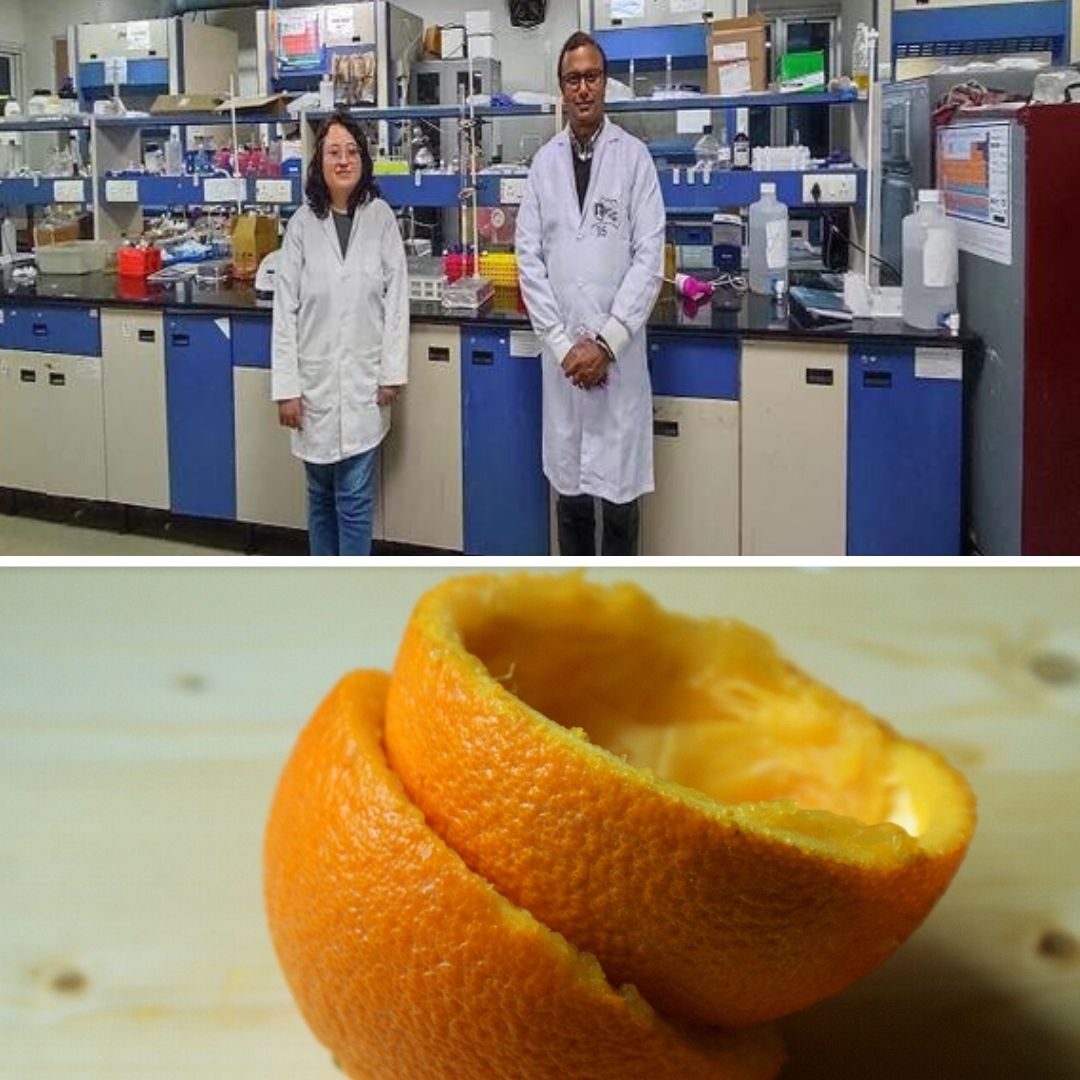Orange Peel To BioFuel Precursor? IIT Mandi Researchers' Approach To Clean, Green Energy
Writer: Devyani Madaik
A media enthusiast, Devyani believes in learning on the job and there is nothing off limits when it comes to work. Writing is her passion and she is always ready for a debate as well.
Himachal Pradesh, 25 Feb 2022 12:58 PM GMT
Editor : Shiva Chaudhary |
A post-graduate in Journalism and Mass Communication with relevant skills, specialising in content editing & writing. I believe in the precise dissemination of information based on facts to the public.
Creatives : Devyani Madaik
A media enthusiast, Devyani believes in learning on the job and there is nothing off limits when it comes to work. Writing is her passion and she is always ready for a debate as well.
Biomass-derived products from natural materials are currently the fourth most significant energy source and an effective alternative to non-renewable energy sources like coal, oil, natural gas, etc.
The Indian Institute of Technology (IIT) Mandi researchers have developed a method using orange peel derived hydrochar as a catalyst to convert biomass into biofuel precursors. It is one of the significant steps towards producing green and clean energy.
The research is also a massive step towards India's aim of achieving sustainable fuel development and attaining self-sufficiency.
Researchers
The technique has been led by Dr Venkata Krishnan, Associate Professor at the School of Basic Sciences, and is co-authored by the students Tripti Chhabra and Prachi Dwivedi. This study has been published in the journal named 'Green Chemistry'.
Need Of Biomass-Derived Products
Biomass-derived products from natural materials are currently the fourth most significant energy source and an effective alternative to non-renewable energy sources like coal, oil, natural gas, etc.
"One of the driving interests among the renewable energy community is the development of relatively clean and energy-efficient processes to convert biomass into useful chemicals, including fuel," NDTV quoted Dr Krishnan as saying.
Procedure
The process started with heating a dried orange peel powder with citric acid under pressure in a hydrothermal reactor for several hours. The hydrochar produced was then treated with other chemicals to introduce acidic sulfonic, phosphate, and nitrate functional groups.
The report states that the converted biofuel precursors will help develop biomass-based fuel and overcome the socio-political instabilities associated with scarce petroleum reserves.
Speaking to the media, researcher Tripti Chhabra detailed that they used three types of catalyst to bring about hydroxyalkylation alkylation (HAA) reactions between 2-Methylfuran and furfural compounds derived from lignocellulose to produce fuel precursors.
Researchers claimed the study to be the first comparative analysis in which the three types of acid functionalization have been assessed.
Also Read: 'You're Not Any Different, You Have Muttappam': Theyyam Artist's Heartfelt Message To Muslim Girl
 All section
All section















